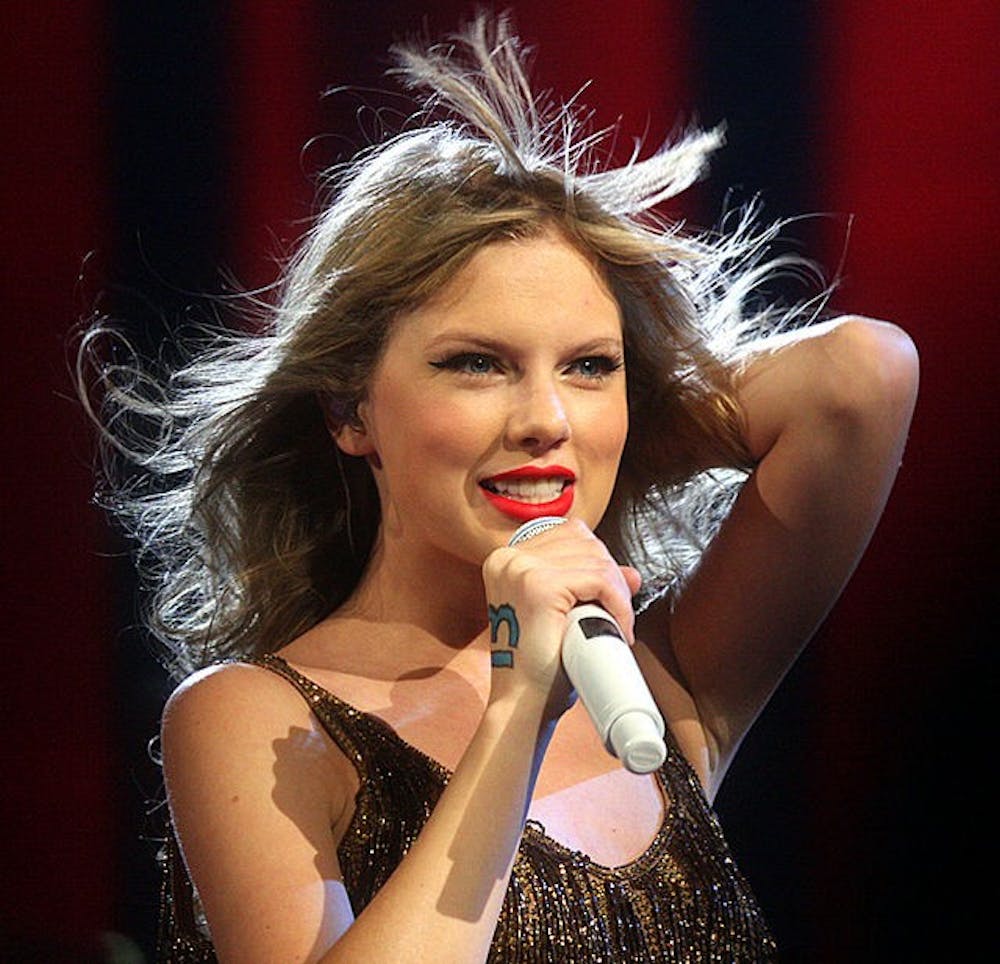One Penn Law professor cares about Taylor Swift's sick beats — but not because they're catchy.
With Swift's world tour on the horizon, Penn Law professor Polk Wagner, who specializes in intellectual property and patent law, spoke out about the implications of her applications for lyric trademarks.
Since October 2014, Taylor Swift has filed about 37 trademarks for bits of her lyrics from her album, 1989. These applications, which Swift hopes to have processed ahead of the start of her world tour on May 5 in Tokyo, include phrases like “this sick beat” and “party like it’s 1989."
Unlike copyright laws, which cover an entire work of expression, trademarks are words or symbols that represent a specific source of a product, like a logo. Trademarks can be filed for anything as long as they’re not the commonly used name for a product, and they’re not entirely descriptive of what the product is. For example, Apple could trademark its name and logo for computers but not for a brand of apples.
“She is positioning herself to have her name associated with a range of goods and services — and not only her name but some of her catchy lyrics. It’s Taylor Swift understanding that she’s bigger than the music. It's more of a branding right, thinking of Taylor Swift as a conglomerate,” Wagner said.
If approved, Swift’s trademarks will prevent the unauthorized use of some of her lyrics in products ranging from t-shirts and baby bibs to Christmas stockings and napkin holders. Swift has yet to obtain the trademark rights and Wagner said that it seems unlikely that all of her applications will be sanctioned. However, Wagner added that if Swift does obtain trademark rights, it is ultimately up to her how strictly she will enforce them.
“It’s a very interesting question that she has to face, which is how much is it worth it to make her fans angry in order to execute this strategy," Wagner said. "She does run the risk of alienating some of her strongest fans."
Last November, Swift removed her music from Spotify, and earlier this year she requested the removal of several unauthorized Etsy items that unofficially featured her name and lyrics.
“Taylor Swift, among major artists right now, is particularly [what] some might say aggressive [and] some might say savvy. She is clearly thinking of herself as her own brand and not just a singer," Wagner said.
Swift isn’t the only artist to have trademarks under her name. Artists such as Kanye West, Katy Perry, and Beyonce all have various trademarks associated with them.
“She’s raising attention to the matter, which means that other artists might get into this as well … The one effect it might have long term is that it ultimately might make people more cynical of the music industry," Wagner said. “You might start looking at people like [Taylor Swift] and thinking that they’re in it for the money and they’re not really artists, and I think if that happens, what the artists have lost is a lot more than their ability to trademark.”



